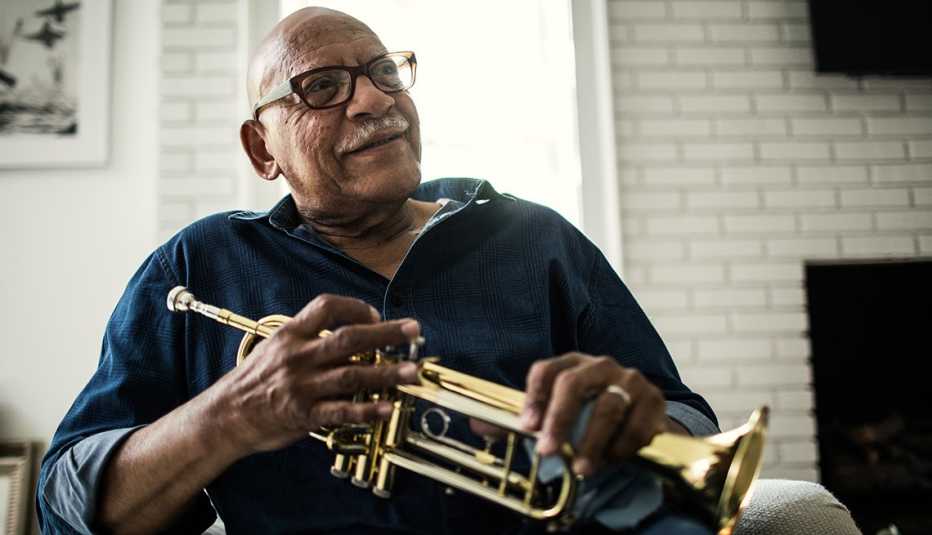AARP Hearing Center


Your favorite album doesn’t just sound good — it may also be good for your mental health.
That’s according to a report from the Global Council on Brain Health (GCBH), an AARP-founded working group of scientists, health care professionals and other experts. Their report, “Music on Our Minds,” highlights research showing music’s positive effect on emotional well-being, including improving mood, decreasing anxiety and managing stress.
“There are so many mechanisms which explain the powerful impact that listening to a piece of music can have,” says report contributor Suzanne Hanser, president of the International Association for Music & Medicine (IAMM) and a professor of music therapy at Berklee College of Music.
As the report details, that impact starts in the brain where music activates many regions, including those associated with emotion and memory. “The music that was played at your wedding or in a religious service, or even at a concert you attended or a dance you were at — that music remains preserved for those neuropathways, which connect that music with really positive feelings,” Hanser says.
Research shows that music can have a beneficial effect on brain chemicals such as dopamine, which is linked to feelings of pleasure, and oxytocin, the so-called “love hormone.” And there is evidence that music can help lower levels of the stress hormone cortisol.
How music can keep your brain healthy
The report also includes findings from the 2020 AARP Music and Brain Health Survey, a nationally representative survey of 3,185 adults, which found that listening to music — whether in the background, by focused listening to recordings or at musical performances — had a small positive impact on mental well-being, depression and anxiety.
“In times when people feel sad, stressed, anxious or lonely, listening to or making music can often help people boost their mental well-being,” says GCBH Executive Director Sarah Lenz Lock, AARP’s senior vice president for policy.
To boost music’s mental-health benefits in your life, Hanser says anyone can adapt some of the techniques used by trained music therapists. One of them is what she calls “deep” or active listening — instead of putting on music as background noise, set aside time to concentrate on what you hear, taking note of the feelings, memories and bodily sensations (whether that’s a slowing of your heart rate or the urge to get up and dance) that arise as you listen.
“We can do that even when we’re feeling at our most isolated and sad,” she says. “We can take control, we can be empowered by the music to feel differently.”





































































More From AARP
The Extraordinary World of Music and the Mind
It can remind you of the best days of your life. It can comfort you. It can even make those who remember little sing again.
Music and Dance Help People with Parkinson's
People with Parkinson's harness the power of music to connect, move with others
Music Therapy Boosts Stroke Recovery Rates
Health experts explore how a song could become the prescription of the future
Recommended for You